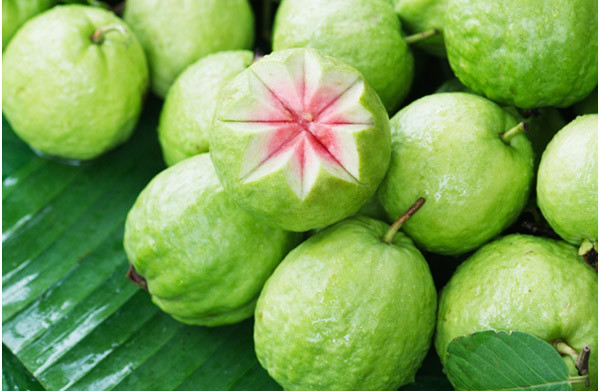Chicken is one of the most common meats that is prevalent all around the world. It is a white meat that can be prepared in various ways and is easily available almost everywhere you go. While you might have enjoyed it in various forms and might also have some favorites, have you ever stopped to count the health benefits of including chicken in your diet? Here are some of the top health benefits of chicken you may find impressive.
Chicken
Chicken has been domesticated and consumed as food for probably thousands of years. There are many varieties including free-range chicken, organic chicken, and conventional chicken, and the differences between them relate to how they are fed and raised. Free-range chickens, as the term implies, are allowed to roam freely in the pastures. On the other hand, conventional chickens, controversially, are kept in cages and not allowed to move freely. Conventionally raised birds are often injected with hormones to speed growth and are sometimes kept in unhygienic and unhealthy conditions meaning they are also often treated with antibiotics.
Of the three, the organic variety is the most expensive because they must have access to the outdoors, are only allowed to eat organically grown food (with no pesticides), and they may not be given antibiotics. They are also supposed to be kept in healthy and clean conditions and allowed to grow naturally. [1]

Baked chicken legs with fresh tomatoes Photo Credit: Shutterstock
Nutritional Value of Chicken
According to the USDA FoodData Central [3], chicken (100 g) provides energy (239 kcal), protein (27.3 g), fat (13.6 g), unsaturated fat (8.31 g), cholesterol (88 mg), phosphorus (182 mg) potassium (223 mg), and sodium (82 mg). In terms of vitamins, it is a good source of vitamin B12, niacin, vitamin B6, pantothenic acid, and also contains vitamin E, K, and others.
Chicken Calories
When it comes to lean protein, it is a very popular option as it does not contain a lot of fat, especially when compared to red meat. The number of calories may vary based on different parts of the chicken. [4]
- Chicken breast calories: 1 cup (140 g) of chopped or diced chicken breast provides 231 calories
- Chicken thigh calories: 100 g serving of chicken thigh provides 209 calories
- Chicken wings calories: 100 g of chicken wings provide 203 calories
Health Benefits of Chicken
Being known all around the world for its protein content, chicken has a wide range of health benefits. Let’s discuss them below.
Fairly High Protein Content
As per the USDA FoodData Central, chicken breast, with 14.73 grams of protein per 100 grams, is one of the best foods for protein. Protein plays an important role in our diet. It is made of amino acids, which are the building blocks of our muscles. Generally, the recommended amount of daily protein requirement is 1 gram per 1 kg of body weight or 0.4 g of protein per pound of body weight. For athletes, the daily requirement of protein is about 0.6 g to 0.9 g per pound. [5]
Rich in Vitamins & Minerals
It is not only a good source of protein but is also possibly very rich in vitamins and minerals. For example, B vitamins help the body with energy production and also help form healthy red blood cells. [6]
Vitamin D in chicken helps in calcium absorption and bone strengthening. Vitamin A helps in building eyesight and is considered to play an important role in the immune system. Minerals such as iron can be helpful in hemoglobin formation, muscle activity, and preventing anemia. Potassium and sodium are electrolytes, which can aid in fluid balance while phosphorus helps tackle weakness, bone health, brain function, dental care, and metabolic issues. [7] [8]
May Control Blood Pressure
Blood pressure can be an invisible condition but have a serious impact on your overall health. It is best managed with a healthy diet and lifestyle habits. A 2008 animal study concluded that collagen extracts from chicken led to a significant decrease in blood pressure. A report by the Harvard Medical School suggests that including chicken in your diet, two servings per week can be a healthy choice in combination with other recommendations. [9] [10]
May Reduce Cholesterol
The amount of saturated fat and cholesterol found in red meat such as beef, pork, and lamb are much higher than the levels found in chicken, fish, and vegetables. Therefore, the American Heart Association [11] has advised consuming chicken or fish instead of red meat for a lowered risk of cholesterol and subsequent heart disease development. The AHA also states that consuming chicken or fish must be limited to normal levels, as excessive consumption can also lead to the development of heart disease.
May Provide Common Cold Relief
While a bowl of chicken soup is not an assured treatment for the common cold, cough, or a sore throat, it has a centuries-old reputation for providing relief when one is down with such common ailments. It offers warmth through the cold and has been a go-to when you experience a loss of appetite.
Quick Chicken Recipes
- Chicken Salad: Add roasted chicken breast, cherries or cranberries, halved seedless grapes, diced apple, chopped green onions, and boiled mushrooms to a bowl and mix well. Add salt and pepper as per taste. Enjoy this healthy and easy to prepare the salad.
- Chicken Sandwich: Toast 2 slices of bread and spread butter on them. Put slices of cucumber, beetroot, onion, capsicum, and cooked chicken on one slice. You can use a mix of chicken thighs and breasts. Add salt and pepper to taste, and cover it with the second slice. Serve with ketchup or mayonnaise.
- Oven-fried Chicken: Take medium-sized cut chicken breast pieces or chicken legs (drumsticks), season them with paprika, and salt to your preferred taste. Dip the pieces in egg whites and later dip them into a mix of crushed cornflakes. Grease a baking tray and place the pieces on it. Bake for 30 minutes and serve.
Here are some more of our favorite chicken recipes:
- Easy Homemade Chicken Biryani Recipe
- Appetizing Popcorn Chicken Recipe
- Chicken Soup Recipe For The Soul>
- Crispy Honey Chili Chicken Recipe
- Perfect Roast Chicken Recipe
- Delicious Avocado Chicken Salad Recipe
Safety Measures
Here are some of the safety measures that should be taken while buying chicken.
- The USDA has specified certain rules and regulations for handling chicken. All the details are mentioned on their official website.
- All the varieties or breeds that are sold in the market are treated as chickens.
- The USDA inspects all the chickens sold in the market as well as in the farms to make sure that they do not have any diseases that spread and guarantee that the consumers get the best quality chicken.
- Chicken can be either fresh or frozen. According to the USDA rules, “fresh” is where the raw poultry has not been frozen below 26° F or -3.3° C. Raw poultry that has been held at 0° F or -17.8° C must be labeled frozen or previously frozen.
- According to the USDA, no growth hormones are used while raising them. On the other hand, antibiotics are used to prevent the spread or development of microbial infections and diseases. However, the law requires the withdrawal of such antibiotics weeks before the slaughter so that no residual antibiotics remain in the birds’ system.
- The USDA also specifies the temperatures at which it can or cannot be stored. At temperatures between 40° F and 140° F, bacteria can start multiplying. Freezing cannot kill bacteria but may stop the bacteria from multiplying and decomposing the chicken. Only the thorough cooking of poultry above 165° F or 73.9° C will kill the bacteria present.
- Some bacteria that can be found in it include Salmonella, Staphylococcus aureus, Campylobacter jejuni, Listeria monocytogenes, and Escherichia coli.
- The USDA also recommends washing hands and cleaning the surfaces often to avoid bacterial infections. Raw poultry, red meats, and fish must be stored separately to stop the spread of any bacteria to other foods.
These are some of the rules and recommendations laid down by the USDA to ensure a safe distribution and consumption of chicken.
Curated by Erbe
Source: https://www.organicfacts.net/health-benefits/animal-product/health-benefits-of-chicken.html
____________________________








